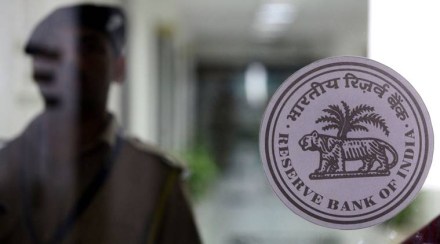The crucial board meeting of the Reserve Bank of India (RBI) is scheduled tomorrow, which may see a stormy session on a range of issues concerning capital framework, management of surplus and restrictions imposed on weaker public sector banks.
The tension between the government and the central bank escalated when the Finance Ministry initiated discussion under the never-used-before Section 7 of the RBI Act. The section empowers the government to give direction to the RBI.
It was followed by a speech by RBI Deputy Governor Viral Acharya, which warned that the governments that undermine the independence of the central bank invite wrath of the markets.
One of the most contentious issues between the government and the RBI is the management of surplus. Earlier this month, The Indian Express had reported that the government wants Rs 3.6 lakh crore from the RBI, a third of its reserves.
The RBI currently has total reserves of Rs 9.7 lakh crore, which is made up of 27% assets in the form of gold and currency. The government has maintained that the RBI’s norms for risk assessment are too conservative and need a revisit.
RBI Reserves – Break-up
- Capital and Other Reserves: Rs 6,733 crore
- Contingency Fund: Rs 2.5 lakh crore
- Currency and Gold Revaluation Reserves: Rs 6.71 lakh crore
- Total Reserves: Rs 9.7 lakh crore
However, former Chief Economic Advisor Arvind Virmani told FE Online that asking more dividends from the RBI for current expenditures is a bad idea. “Conversion of reserve assets into dividends to be used for current expenditures is a bad idea from the fiscal perspective,” Virmani said.
Even as Virmani thinks that it is “quite likely” that RBI’s assessment of risk is conservative, however, the best way to deal with the issue, he said, is neither as suggested by the government, not as suggested by the central bank.
“To the extent that there is an excess of reserves with the RBI, they should be used to write off outstanding RBI loans to the government. This would be a book transaction, to clean up the balance sheets of the RBI and the government, consistent with the whole of government approach, which will also be net positive for markets,” Virmani suggested.
On government’s push for relaxation of the Prompt Corrective Action (PCA) norms, which has put lending restrictions on 11 PSU banks with high NPAs and low Capital Adequacy Ratio (CAR), Virmani said it’s a specific technical issue, which can be best resolved through technical-professional committees with the representation of stakeholders.
